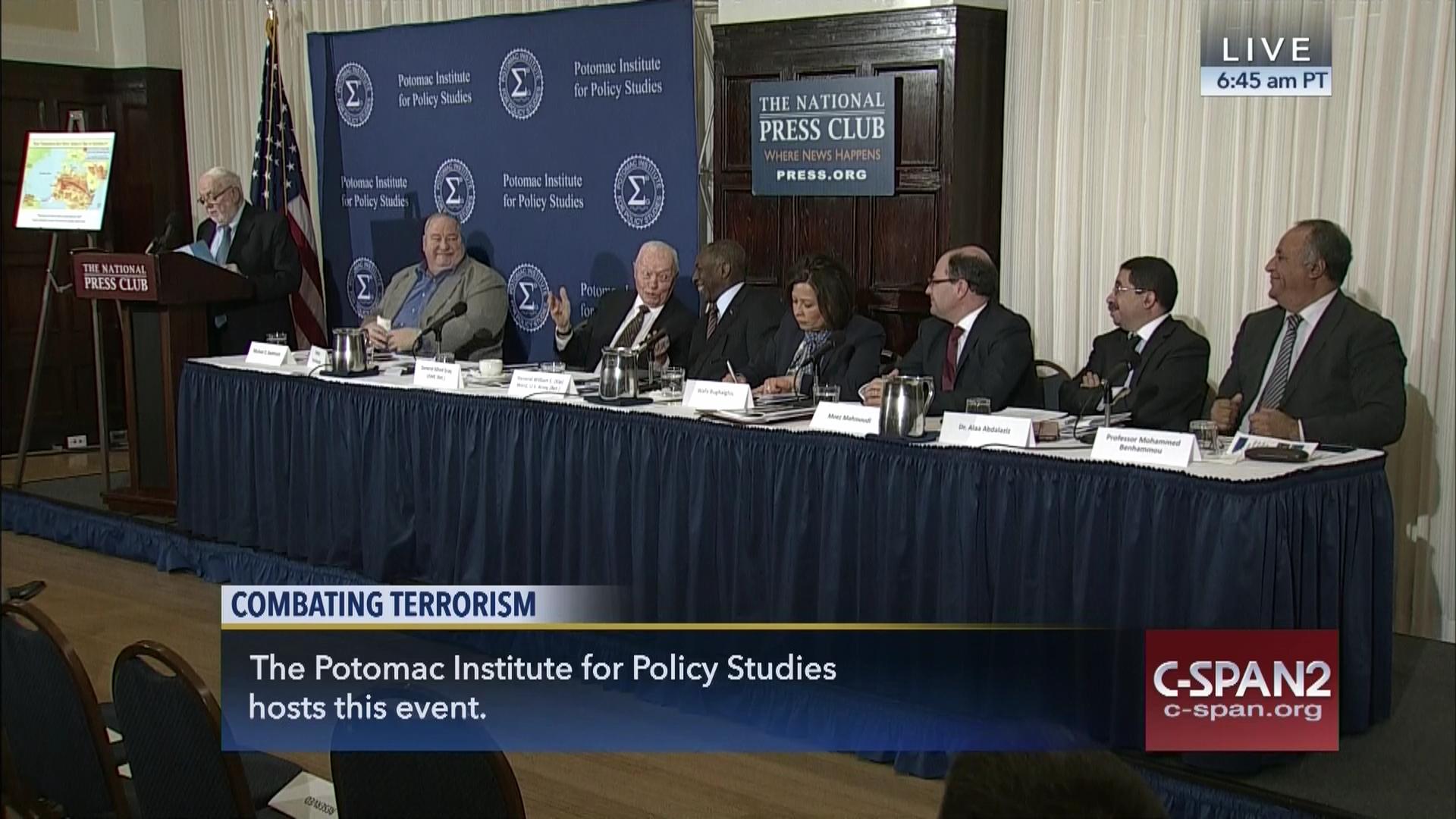Text of Speech at international seminar, International Cooperation to Counter Terrorism, at the Potomac Institute of Policy Studies, Washington DC, USA on April 14, 2016.
Good Afternoon, Ladies and Gentlemen.
Thank you Prof. Yonah Alexander for your kind remarks. I am really glad to be here today to be on the panel to discuss international cooperation to counter terrorism.
It is always difficult to be the last speaker particularly after such illustrious speakers. I will try my best to add some Indian spices to make it somewhat interesting.
Well, Terrorism is a serious business and quite traumatic. Even under such challenging conditions, people do find time for some fun. I heard a joke during my regular trips to Gaza in Palestine several years ago. Here it goes: When a Palestinian mother is ready to deliver baby, the baby peeps out first to make sure that there are no Israeli soldiers around and then comes out.
There is no need to re-emphasize the importance of international cooperation in combatting terrorism. Be it in the form of sharing of intelligence, operational cooperation or technical assistance.
9/11, in a number of ways, is the water mark in international cooperation in fighting terrorism.
India has been facing terrorism from across the border for a pretty long time. The US and its allies in Europe and the Gulf not only ignored terrorism emanating from across our border but also tried to cover it up in a number of ways. Mr. B. Raman, former chief of Counter-Terrorism in the Indian External Intelligence Service, gave ample examples in his book “Kao Boys” on how the evidence given by India to the US was deliberately destroyed.
Such indirect backing only exacerbated state-sponsored terrorism as the perpetrators had nothing to fear.
9/11 has shattered such indifference. International pressure forced governments to act decisively against any form of terrorism.
There was greater understanding of what India was going through and consequently, there was dramatic improvement in relations between the US and India.
Cooperation in counter-terrorism has seen considerable progress with intelligence sharing, information exchange, operational cooperation, counter-terrorism technology and equipment. India-US Counter-Terrorism Cooperation Initiative was signed in 2010 to expand collaboration on counter-terrorism, information sharing and capacity building. A Homeland Security Dialogue was announced during President Obama’s visit to India in November 2010 to further deepen operational cooperation, counter-terrorism technology transfers and capacity building. This was re-emphasized during the visit of Prime Minister Modi in 2014. There has been a regular dialogue on counter-terrorism between the State Dept and External Affairs Ministry.
26/11 Mumbai terror attacks saw the two countries work closely and identify the perpetrators and their LeT handlers in Pakistan. However, there were missed opportunities which could have helped prevent the attacks. David Coleman Headley was the one who did the reccee and record topographical pictures of the Mumbai targets, which were later used by the LeT operatives to attack. Headley was also an agent of US domestic agencies who were aware of his regular visits to Pakistan and India. Had he been questioned and his movements shared with India, Mumbai attacks perhaps could have been averted. Despite initial resistance, it is now heartening to see that the US is giving increased access to Indian agencies to question Headley.
There is similar improvement in counter-terrorism cooperation with the UAE and Saudi Arabia, who had earlier sheltered several of India wanted terrorists. The UAE has deported a number of terror operatives and Islamic State (IS) radicalised youth to India. Recently, Saudi Arabia sent to India a terror suspect, who was said to be plotting an attack against India. Since the repatriation of Abu Jindal in 2012, Saudi Arabia appears to be showing more willingness to cooperate with India.
There are, however, limits to such cooperation. While many known and unknown terrorist elements are targeted for aerial raids in many theaters including Af-Pak, most-wanted terrorist leaders like Hafeez al Sayeed of the Lashkar e Taiba, Maulana Masood Azhar of the Jaish-e-Mohammad, etc., are openly roaming around propagating jihad. Although the two organizations are banned terrorist groups, and Sayyeed himself carries an American bounty of $ 10 million on his head, they do not seem to fear.
China even protects Azhar from being included in UN terrorist list under the cover `technical hold’.
So, some nations follow a policy of Good and Bad terrorists. As long as this duplicitous policies continue, it is difficult to see how terrorism can be countered effectively.
Middle East theatre is also truly suffering from this Good and Bad terror syndrome. Some regional countries supported various terrorist groups. However, Russia-US cooperation in Syria proving to be highly effective. It resulted in:
- a) Increased Intelligence sharing and co-ordinated bombing of the ISIS/ Al Nusra strongholds
- b) UN sponsored peace negotiations
- c) Selecting right groups for negotiations and targeting other terror
- c) Pressure on Saudi Arabia and Turkey to keep off sponsoring terror groups
Russia-US cooperation may be expanded to other theaters as well, such as Yemen, Iraq, and Libya for more meaningful way of tackling terrorism.
States practicing Good and Bad terrorism must be pressured to give up using terror as means of their foreign policy.
UN shall be empowered to create negative consequences against those practicing terrorism to promote their interests.
Regular dialogue among nations, both bilateral, regional and multi-national levels could help better understand and counter terrorism of all forms

